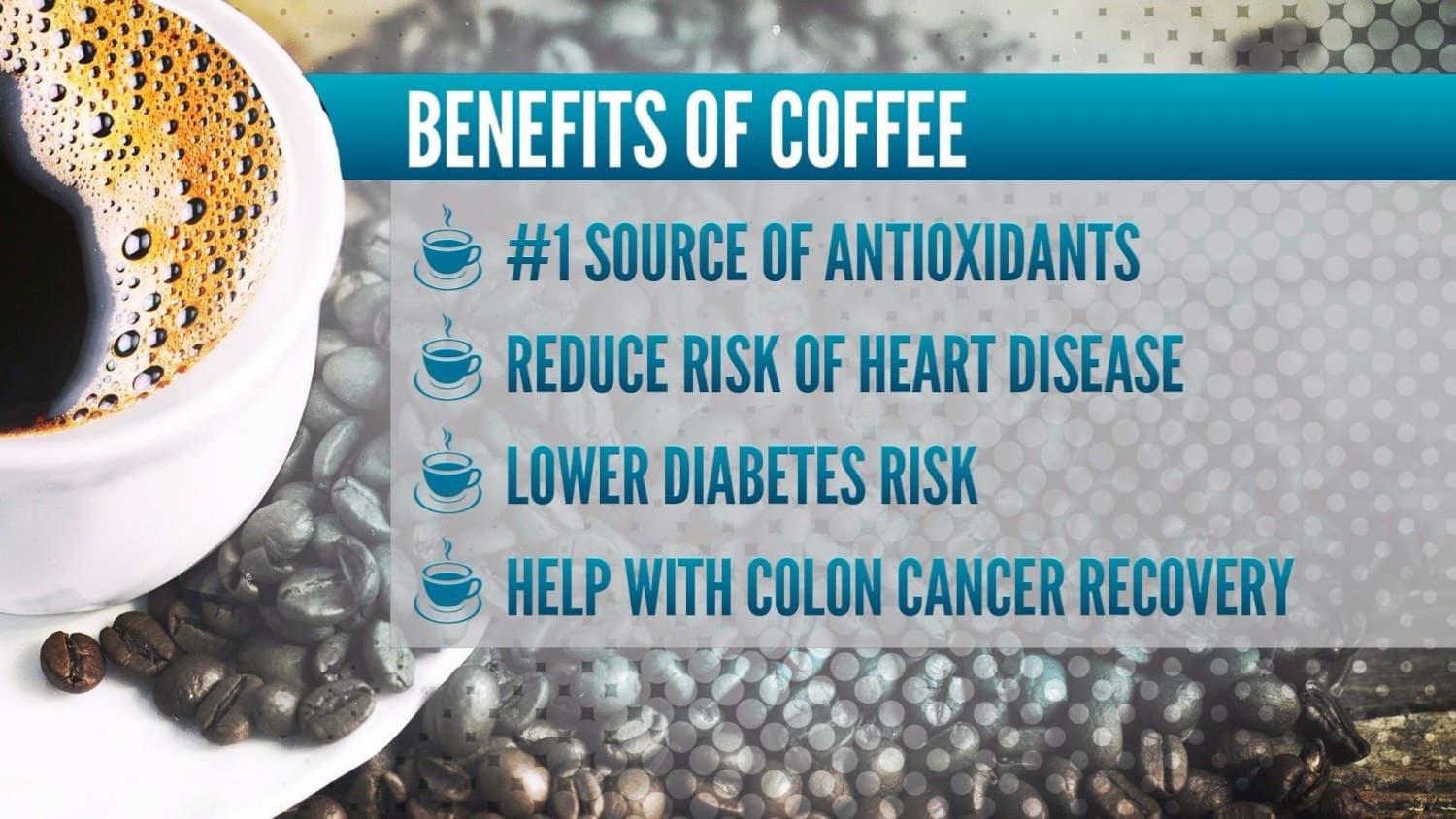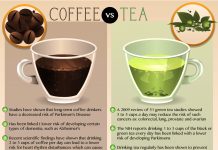Are you a coffee lover who also cares about maintaining a healthy heart? If so, you might have wondered, “What kind of coffee is good for the heart?”
Well, fret no more because we have the answers you want. In this article, we will explore the various types of coffee linked to heart health benefits, providing valuable insights to make informed choices regarding your daily cup of joe.
So grab a steaming mug and prepare to discover the perfect brew for your heart! When it comes to coffee, there are plenty of choices available.
But if you’re conscious about your heart health, you may wonder what coffee is good for you. This article will explore various aspects of coffee and how they may impact your heart health.
From regular coffee vs. decaffeinated coffee to filtered coffee vs. unfiltered coffee, we will dive into the details and help you make an informed decision about your coffee choices.
Regular Coffee vs. Decaffeinated Coffee
Effects of Caffeine on the Heart
Caffeine is a central nervous system stimulant found naturally in coffee. While it can provide a boost of energy, it may also have some effects on the heart. Regular coffee contains caffeine, which can increase heart rate and blood pressure. This can be a concern for individuals with hypertension or heart conditions.
Benefits of Regular Coffee for Heart Health
Despite the potential concerns, regular coffee has also been associated with heart health benefits. Studies have suggested that moderate consumption of regular coffee may reduce the risk of heart disease. This could be due to the presence of antioxidants and other beneficial compounds.
Benefits of Decaffeinated Coffee for Heart Health
Decaffeinated coffee is a popular choice among those who want to enjoy coffee’s flavor without caffeine’s stimulating effects. Decaf coffee has been found to have similar benefits as regular coffee regarding heart health. It may still contain antioxidants and other beneficial compounds promoting heart health.
Considerations for Caffeine Sensitivity
Decaffeinated coffee may be a better option if you are sensitive to caffeine or have a heart condition requiring you to limit caffeine intake. However, it’s important to note that decaf coffee is not entirely caffeine-free. It still contains a small amount of caffeine, usually around 2-5 milligrams per 8-ounce cup.
Dark Roast Coffee vs. Light Roast Coffee
Antioxidant Content in Dark Roast Coffee
When it comes to antioxidants, dark roast coffee takes the lead; the roasting process of coffee beans can influence the antioxidant content of the final product. Dark roast coffee is roasted longer, resulting in the breakdown of antioxidants, such as chlorogenic acid. This means dark roast coffee may have a lower antioxidant content than light roast coffee.
Effects on Blood Pressure
Several studies have shown that dark and light roast coffee can temporarily increase blood pressure. However, the effect seems to be more pronounced with light roast coffee. Opting for dark roast coffee may be beneficial if you have high blood pressure.
Effects on Cholesterol Levels
Research suggests that dark and light roast coffee may positively impact cholesterol levels. Coffee consumption has been associated with higher high-density lipoprotein (HDL) or “good” cholesterol levels. This can potentially benefit heart health by reducing the risk of heart disease.
Flavor Preferences and Heart Health
Personal preference plays a significant role when choosing between dark and light roast coffee. Dark roast coffee may be your go-to choice if you enjoy a bolder and more robust flavor. Alternatively, if you prefer a milder taste, light roast coffee may be more suited to your taste buds. Ultimately, both options can have similar heart health benefits, so choose the one you enjoy the most.
Black Coffee vs. Coffee with Milk or Cream
Effects of Milk and Cream on Heart Health
Adding milk or cream to your coffee can enhance its flavor and creaminess. However, it’s essential to consider the impact on heart health. Whole milk and cream contain saturated fats, which can increase cholesterol levels and the risk of heart disease. Opting for low-fat or non-dairy alternatives, such as almond or oat milk, can be a healthier choice.
Calorie and Fat Content
Adding milk or cream to coffee can significantly increase its calorie and fat content. If you’re watching your calorie intake or trying to maintain a healthy weight, choosing black coffee may be a better option. Black coffee is virtually calorie-free, making it a more waistline-friendly choice.
Impact on Cholesterol Levels
As mentioned, whole milk and cream saturated fats can raise cholesterol levels. High LDL or “bad” cholesterol levels are associated with an increased risk of heart disease. By opting for black coffee or low-fat milk alternatives, you can help maintain better heart health by managing cholesterol levels.
Considerations for Lactose Intolerance
If lactose intolerant, adding milk or cream to your coffee may cause digestive discomfort. Lactose intolerance is the inability to digest lactose, the natural sugar in milk. Opting for non-dairy alternatives can be an excellent option to enjoy your coffee without adversely affecting your digestive system.
Filtered Coffee vs. Unfiltered Coffee
Effect of Coffee Filters on Cholesterol Levels
Filtered coffee is prepared by allowing hot water to pass through a filter, removing most coffee grounds. This brewing method has been found to impact cholesterol levels positively. The filter traps compounds known as cafestol and kahweol are responsible for raising LDL cholesterol levels. By using a coffee filter, you can lower your risk of heart disease.
Unfiltered Coffee and Compounds Affecting Heart Health
Unfiltered coffee, such as French press or Turkish coffee, does not use a filtering process. As a result, it retains higher levels of cafestol and kahweol. These compounds can contribute to increased LDL cholesterol levels. If you prefer unfiltered coffee, it’s important to consider moderation and balance it with other heart-healthy habits.
Impact on Lipid Levels
Studies have shown that drinking filtered coffee can lead to a reduction in LDL cholesterol levels. In contrast, unfiltered coffee may have the opposite effect by raising LDL cholesterol levels. Maintaining healthy lipid levels is crucial for heart health, and choosing filtered coffee over unfiltered coffee can be a step in the right direction.
Considerations for Coffee Brewing Methods
If you are a fan of unfiltered coffee, there are ways to minimize the negative impact on cholesterol levels. Using a paper or mesh filter with a fine sieve can help remove some cafestol and kahweol. Additionally, limiting the consumption of unfiltered coffee and balancing it with filtered coffee or other heart-healthy choices can support overall heart health.
Caffeinated Coffee vs. Caffeine-Free Coffee
Effects of Caffeine on Heart Health
Caffeine is a natural stimulant in coffee that can affect the body, including the heart. It can increase heart rate, blood pressure, and the risk of arrhythmias. Caffeine-free coffee may be a better choice for individuals with certain heart conditions or sensitivities to caffeine.
Beneficial Compounds in Caffeinated Coffee
While caffeine may have potential downsides for some individuals, caffeinated coffee also contains beneficial compounds. Coffee is rich in antioxidants, such as chlorogenic acid and polyphenols, associated with heart health benefits. These antioxidants can help reduce inflammation and protect against oxidative stress.
Considerations for Caffeine Intake
If you enjoy the taste and aroma of coffee but are sensitive to caffeine or have a heart condition, choosing decaffeinated coffee can be a suitable option. Decaf coffee undergoes a process to remove most of the caffeine, making it a safer choice for individuals who need to limit their caffeine intake. It’s important to note that decaf coffee still contains a small amount of caffeine, so it’s essential to consider your tolerance.
Benefits of Caffeine-Free Coffee
Caffeine-free coffee provides a way to enjoy coffee’s taste and ritual without caffeine’s stimulating effects. It can be an excellent option for individuals susceptible to caffeine or those who want to reduce their caffeine intake. Caffeine-free coffee still contains antioxidants and can provide similar heart health benefits to regular coffee.
Hot Coffee vs. Cold Brew Coffee
Effect of Temperature on Heart Health
The temperature of your coffee can influence its impact on heart health. Hot coffee has been associated with a temporary increase in blood pressure, while cold brew coffee may have a milder effect. If you have high blood pressure or are concerned about the immediate effects of caffeine on your heart, cold brew coffee may be the better option.
Temperature and Blood Pressure
Studies have shown that the temperature of our beverages can impact blood pressure. Hot beverages, including coffee, can cause a transient increase in blood pressure, especially in individuals with hypertension. Opting for cold brew coffee typically served chilled, may help mitigate this potential temporary effect on blood pressure.
Antioxidant Content in Hot and Cold Brew Coffee
The brewing process of hot and cold brew coffee can influence the antioxidant content of the final product. Hot coffee is brewed with hot water, which extracts antioxidants from the coffee beans. On the other hand, cold brew coffee is steeped in cold water for a longer duration, resulting in a different antioxidant profile. While both options provide antioxidants, their levels may differ.
Preferences and Benefits for Heart Health
Choosing between hot coffee and cold brew coffee ultimately depends on personal preference. Some enjoy the comforting warmth of a hot cup of coffee, while others prefer the refreshing coolness of cold-brew coffee. Both options can have similar heart health benefits, so choose the one that brings you joy and satisfies your taste buds.
Organic Coffee vs. Non-Organic Coffee
Pesticide Residue and Heart Health
One of the key differences between organic and non-organic coffee is the use of pesticides during cultivation. Organic coffee is grown without the use of synthetic pesticides, which can have adverse effects on human health. You can reduce exposure to potentially harmful chemicals and promote heart health by choosing organic coffee.
Environmental Impact of Coffee Production
Organic coffee farming practices prioritize sustainability and environmental conservation. On the other hand, non-organic coffee farming may involve synthetic fertilizers and pesticides, which can harm the environment. You can contribute to sustainable agriculture and support a healthier planet by choosing organic coffee.
Preferences and Benefits of Organic Coffee
Organic coffee has gained popularity due to its potential health benefits and ethical farming practices. It is believed to contain higher antioxidants and beneficial compounds than non-organic coffee. Additionally, the absence of synthetic chemicals can make organic coffee a safer choice for individuals with sensitivities or allergies.
Considerations for Purchasing Decisions
When purchasing coffee, it’s essential to look for certifications that indicate organic farming practices. Labels such as “USDA Organic” or “Rainforest Alliance Certified” can assure you that the coffee has been produced according to specific standards. It’s also worth considering fair trade certifications, which ensure that farmers are paid fair wages for their work.
Single-Origin Coffee vs. Blend Coffee
Quality and Nutrient Content
Single-origin coffee refers to coffee sourced from a specific region or farm. It is often associated with higher quality and unique flavor profiles. On the other hand, blended coffee combines beans from different regions to create a consistent taste. Both options can provide similar benefits for heart health if the coffee is high quality.
Taste and Flavor Profile
Single-origin coffee can offer a distinct taste experience, showcasing the unique characteristics of the region it comes from. It allows coffee enthusiasts to explore a variety of flavors and aromas. Blend coffee, however, aims to provide a consistent taste and flavor profile. Ultimately, choosing between the two comes down to personal preference.
Environmental and Social Impact
Single-origin coffee often focuses on supporting specific regions or communities. You can contribute to those areas’ sustainability and economic development by purchasing single-origin coffee. Blend coffee may not have the same direct impact but it can still support coffee-growing communities.
Personal Preferences and Health Considerations
Personal taste preferences play a significant role when choosing between single-origin coffee and blended coffee. Some individuals enjoy the diversity and complexity of single-origin coffee, while others prefer the consistency of a blend. Consider your taste preferences and explore options to find what suits your palate.
Coffee Consumption Quantity
Recommended Daily Intake
While enjoying a cup of coffee can benefit heart health, consuming it in moderation is essential. The recommended daily intake of coffee varies from person to person. As a general guideline, consuming around 3-4 cups of coffee daily is considered moderate and safe for most individuals.
Effects of Excessive Consumption
Excessive coffee consumption can have adverse effects on heart health. Consuming large amounts of caffeine can lead to increased heart rate, irregular heartbeats, and even sleep disturbances. Be mindful of your tolerance and ensure you do not exceed the recommended daily intake.
Individual Tolerance and Reactions
Individuals may react differently to caffeine based on their genetic makeup, health, and metabolism. Some people may be more sensitive to the effects of caffeine, while others may tolerate higher amounts. Pay attention to how your body responds to coffee and adjust your consumption accordingly.
Finding the Right Balance for Heart Health
To find the right balance of coffee consumption for optimal heart health, listening to your body and being mindful of caffeine intake is essential. If you have any underlying health conditions or concerns, it is always advisable to consult with a healthcare professional for personalized recommendations.
In conclusion, when choosing coffee for heart health, there are several factors to consider. Regular and decaffeinated coffee has benefits, depending on your sensitivity to caffeine.
Dark and light roast coffee can offer similar heart health benefits, with personal flavor preferences being the deciding factor. Adding milk or cream to coffee should be done cautiously, considering its impact on cholesterol levels.
Filtered coffee is generally better for heart health due to lower cholesterol-raising compounds. The caffeine content in coffee should be considered, with caffeine-free options being available for sensitive people.
The temperature of coffee can temporarily affect blood pressure, so making a choice based on your cardiovascular health is essential. Organic coffee promotes heart health and supports sustainable farming practices.
Single-origin and blended coffee have merits, depending on your taste preferences. Lastly, it’s crucial to maintain moderation in coffee consumption to ensure optimal heart health. By considering these factors and listening to your body’s needs, you can make informed choices and enjoy your coffee while prioritizing your heart health.










































